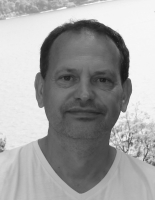Prof. Dr. Dietrich Jung

Areas of interest
- social theory
- modern history of Islam
- Middle East Studies
- historical political sociology
- sociology of religion
Islamic Modernities in World Society
How is one “authentically” modern? My project explores the multiplicity of answers that Muslims have provided to this question. These answers relate to ideas of citizenship, educational and moral cultivation, economic entrepreneurship, political institutions, scientific knowledge, bodily performances, and forms of consumerist and creative self-made identities. Throughout the twentieth century we can observe the rise, spread and fragmentation of a meanwhile relatively hegemonic idea according to which the attachment to Islamic traditions bestows projects of Muslim modernities with cultural authenticity. Drawing on different strands of social theory, I interpret this specifically Islamic discourse of modernity as an inherent part of global modernity, in conceptual terms understood as the emergence of world society. The guiding research question of my project is, then, in which ways do the rise of Islamic modernities and the emergence of world society intersect?
I take my point of departure in the latest discussion about “multiple modernities that has reached the discipline of Islamic studies too. Current research on Islam puts its focus on the formation of pietistic Muslim identities, emphasizing the continuing importance of religion in the construction of forms of Muslim modernities. With this focus on Islam/religion, these studies deliver a welcome critique of the often secularist and Eurocentric bias in the academic study of modern Islam. At the same time, however, they are limited in scope due to their focus on both strictly religious observant Muslims and the present. Moreover, pitting cases of pietistic Muslims against the alleged secular nature of Western modernity, they implicitly confirm the idea of a fundamental alterity between “Islam and the West.” In my project I seek to overcome these limitations of the current state of the art in three ways: theoretically, historically and in my choice of cases. Employing non-normative theories of world society, I investigate a number of societal “boundary negotiations” between non-religious arenas and religion through which new semantics of Islamic modernities have emerged since the nineteenth century.
Biography
Professor and Head of the Center for Modern Middle East and Muslim Studies, Institute for History, University of Southern Denmark, Denmark (DNK).
Partner, Centre for the Resolution of International Conflict, University of Copenhagen, Copenhagen (DNK)
Senior Research Fellow, Danish Institute for International Studies, Copenhagen (DNK)
Senior Research Fellow, Copenhagen Peace Research Institute (COPRI), Copenhagen (DNK)
Research Fellow, Copenhagen Peace Research Institute (COPRI), Copenhagen (DNK)
Assistant Professor, Bilkent University, International Relations Department, Ankara (TUR)
Lecturer, Department of History and Culture of the Middle East, University of Hamburg, Hamburg (GER)
Researcher, Unit for Study of Wars, Armaments and Development, University of Hamburg, Hamburg (GER)
Relevant Publications
- Jung, Dietrich. Der Islam in Der Globalen Moderne: Soziologische Theorie Und Die Vielfalt Islamischer Modernitäten. Politik und Gesellschaft des Nahen Ostens. Wiesbaden: Springer, 2021.
- Jung, Dietrich, and Kirstine Sinclair, eds. Muslim Subjectivities in Global Modernity: Islamic Traditions and the Construction of Modern Muslim Identities. International Studies in Religion and Society 35. Leiden: Brill, 2020.
- Jung, Dietrich, and Stephan Stetter, eds. Modern Subjectivities in World Society: Global Structures and Local Practices. Palgrave Studies in International Relations. Cham: Springer, 2019.
- Jung, Dietrich, and Ahmed el Zalaf. “Hasan Al-Banna and the Modern Muslim Self: Subjectivity Formation and the Search for an Islamic Order in Early 20th-Century Egypt.” Numen 66, no. 4 (2019): 381–402.
- Jung, Dietrich. “Modern Muslim Subjectivities: Religion and Multiple Modernities Within Islam.” Numen 66, no. 4 (2019): 339–59.
- Jung, Dietrich. “Die Religion in Der Moderne: Kritische Betrachtungen Zum Begriff Der Postsäkularen Gesellschaft - Religion in Modernity: Critical Reflections About the Concept of Post-Secular Society.” Neue Politische Literatur, no. 3 (2017): 449–72.
- Jung, Dietrich. Muslim History and Social Theory: A Global Sociology of Modernity. Cham: Palgrave Macmillan, 2017.
- Jung, Dietrich. “Understanding the Multiple Voices of Islamic Modernities: The Case of Jihad.” Temenos 52, no. 1 (2016): 61–86.
- Jung, Dietrich, and Kirstine Sinclair. “Multiple Modernities, Modern Subjectivities and Social Order: Unity and Difference in the Rise of Islamic Modernities.” Thesis Eleven 130, no. 1 (2015): 22–42.
- Jung, Dietrich, and Marie Juul Petersen. “We Think That This Job Pleases Allah”: Islamic Charity, Social Order, and the Construction of Modern Muslim Selfhoods in Jordan.” International Journal of Middle East Studies 46, no. 2 (2014): 285–306.
- Jung, Dietrich, Marie Juul Petersen, and Sara Lei Sparre. Politics of Modern Muslim Subjectivities: Islam, Youth, and Social Activism in the Middle East. The Modern Muslim World. New York: Palgrave Macmillan, 2014.
- Jung, Dietrich. Orientalists, Islamists and the Global Public Sphere: A Genealogy of the Modern Essentialist Image of Islam. Comparative Islamic studies. London: Equinox, 2011.


